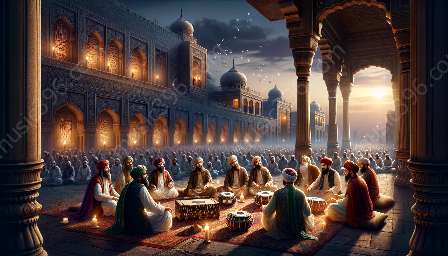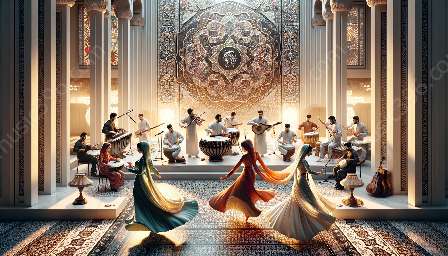Arabic music is a deeply ingrained part of cultural and social life in the Arab world, with a rich historical backdrop of gender perspectives influencing its diverse musical landscape. Exploring the gender roles, representation, and contributions in Arabic music provides an insightful view into the intertwined connection between music, culture, and identity.
Exploring Historical Context
Widely recognized as one of the oldest forms of music, Arabic music encompasses a wide range of styles, instruments, and traditions that have been shaped by the diverse cultures and influences within the Arab world. The historical context of Arabic music reflects the various gender perspectives that have played a pivotal role in shaping its evolution over centuries.
Gender Roles in Traditional Music
Traditional Arabic music often reflects distinct gender roles and societal expectations. For centuries, the role of women in traditional Arabic music was often confined to specific settings, such as private gatherings or celebrations. Male musicians, on the other hand, enjoyed greater visibility and opportunities in public performances, often occupying prominent positions in musical ensembles and events.
Female Empowerment in Arabic Music
While traditional gender perspectives have influenced the representation of women in Arabic music, the modern era has seen a significant shift towards female empowerment and increased participation in the music industry. Female artists are breaking traditional norms and paving the way for gender equality in Arabic music, gaining recognition and acclaim for their contributions to the genre.
Male Influence and Representation
Male musicians have historically held a dominant position in Arabic music, contributing to its diverse genres and styles. The influence of male artists in shaping the musical landscape reflects the evolution of gender perspectives and the role of men as cultural custodians and innovators in Arabic music.
Gender Perspectives in World Music
The influence of Arabic music on the global stage has provided a platform for showcasing gender perspectives within a broader context. The fusion of traditional Arabic music with world music has enabled cross-cultural exchanges, opening doors for diverse gender representations and collaborations that transcend traditional boundaries.
Championing Diversity and Inclusion
As gender perspectives in Arabic music continue to evolve, the industry is witnessing a growing emphasis on championing diversity and inclusion. Efforts to amplify the voices of underrepresented genders, celebrate diversity, and challenge conventional norms are shaping the future of Arabic music with a renewed sense of inclusivity.
Impact on Cultural Identity
Arabic music serves as a reflection of cultural identity, with gender perspectives playing a significant role in shaping the narrative of the Arab world. The representation of gender in music serves as a mirror to societal values, traditions, and the ever-changing dynamics of cultural expression.
Conclusion
Gender perspectives in Arabic music offer a captivating insight into the intricate relationship between music, culture, and society. As the genre continues to evolve, the diverse contributions and representations from both male and female musicians underscore the enduring influence of gender perspectives in Arabic music, shaping its impact on the world music stage.










































